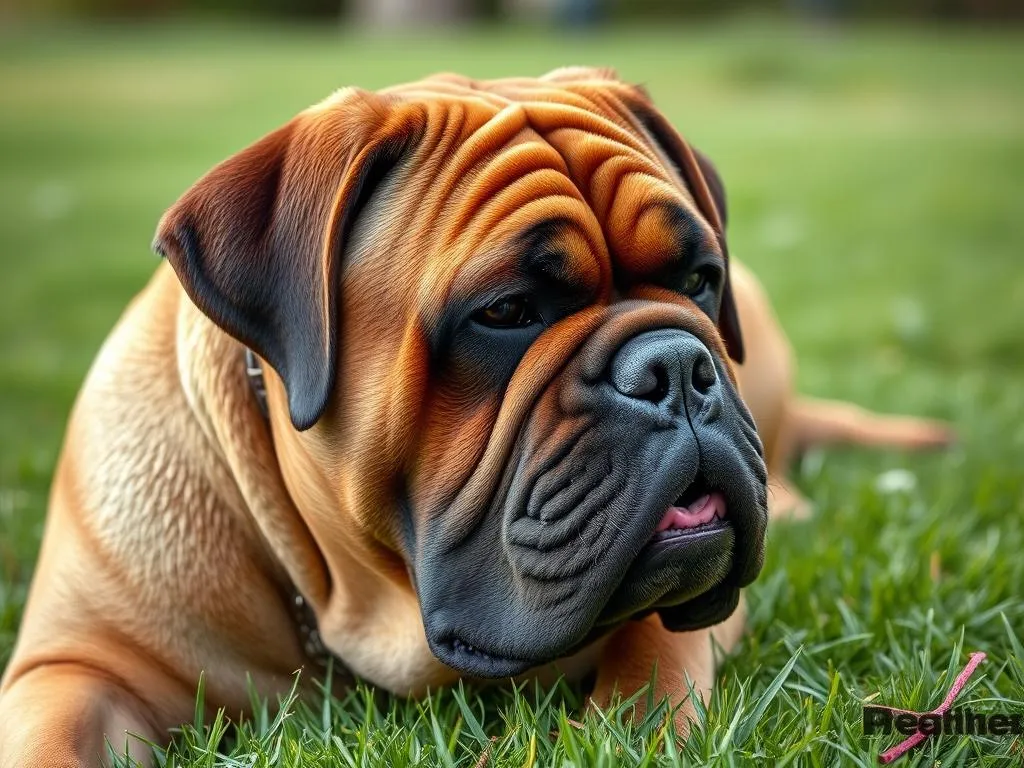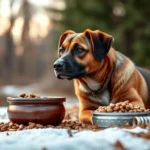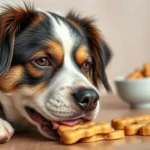
Mastiffs are one of the largest dog breeds, known for their gentle temperament and protective nature. Their size brings unique dietary needs that must be met to ensure their health and longevity. Understanding the importance of proper nutrition is crucial for these magnificent animals, as it directly influences their overall well-being. This article delves into the best dog foods for Mastiffs, considering their unique nutritional requirements, potential health issues, and the best feeding practices to keep them thriving.
Understanding Mastiff Nutrition
Unique Nutritional Needs of Mastiffs
Mastiffs are characterized by their massive size, strength, and gentle demeanor. Their large frame requires a diet that is rich in high-quality nutrients to support their substantial muscle mass and energy levels.
When considering the best dog foods for Mastiffs, it’s important to focus on their specific requirements. A balanced diet for a Mastiff should consist of:
- Protein: High-quality protein sources like chicken, beef, and fish are essential for muscle development and maintenance. Mastiffs need a diet that contains at least 18-30% protein, depending on their life stage.
- Fat: Healthy fats are crucial for energy and coat health. Mastiffs should have a fat content of around 8-15%.
- Carbohydrates: While not as critical as proteins and fats, carbohydrates provide energy. Whole grains like brown rice and oats are excellent sources, but some Mastiffs may benefit from a grain-free diet.
Common Health Issues in Mastiffs Related to Diet
Mastiffs are prone to several health issues that can be exacerbated by poor nutrition:
- Bloat (Gastric Dilatation Volvulus): This life-threatening condition can occur in large breeds and is influenced by diet and feeding practices. It’s essential to avoid feeding large meals and to keep them calm after eating.
- Hip Dysplasia and Joint Health: Due to their size and weight, Mastiffs are susceptible to hip dysplasia. A diet rich in omega fatty acids and glucosamine can help support joint health.
- Obesity: Mastiffs can easily become overweight, leading to various health issues. Monitoring their diet and ensuring proper portion sizes is key to maintaining a healthy weight.
Key Nutrients for Mastiffs
To ensure optimal health, certain nutrients are particularly beneficial for Mastiffs:
- High-quality Protein Sources: Essential for muscle maintenance and growth.
- Omega Fatty Acids: Promote skin and coat health, reducing the risk of skin issues.
- Calcium and Phosphorus: Crucial for bone development and strength, especially during the growth phase.
Factors to Consider When Choosing Dog Food for Mastiffs
Life Stage of the Mastiff
Mastiffs have different nutritional needs at various life stages:
- Puppies: Require a diet rich in protein and calories to support their rapid growth.
- Adults: Should maintain a balanced diet to keep their weight in check while providing sufficient energy.
- Seniors: May need a diet lower in calories but higher in joint-supporting nutrients.
Ingredients to Look For
When selecting the best dog foods for Mastiffs, consider the following ingredients:
- High-Quality Protein Sources: Look for named meats like chicken, beef, or fish as the first ingredient.
- Whole Grains vs. Grain-Free Options: Whole grains provide fiber, while grain-free diets can be beneficial for dogs with sensitivities. Choose based on your Mastiff’s needs.
- Beneficial Add-Ins: Ingredients such as probiotics for digestive health and glucosamine for joint support are excellent additions.
Ingredients to Avoid
Certain ingredients can be harmful to Mastiffs:
- Common Allergens: Avoid foods containing corn, soy, and wheat, which can trigger allergic reactions.
- Fillers and Artificial Additives: These provide little nutritional value and can lead to health issues.
- Low-Quality Meat By-Products: These can be difficult for Mastiffs to digest and may not provide adequate nutrition.
Types of Dog Food Suitable for Mastiffs
Dry Kibble
Dry kibble is a popular choice for many dog owners due to its convenience and long shelf life. For Mastiffs, dry food can help maintain dental health by reducing plaque buildup.
- Recommended Brands: Look for brands that specifically formulate for large breeds, ensuring optimal protein and fat ratios.
Wet Food
Wet food can be beneficial for hydration and palatability, making it easier for picky eaters to consume their meals.
- Suggested Varieties: Choose high-quality wet food with real meat as the primary ingredient and minimal fillers.
Raw Diets
A raw diet consists of uncooked meat, bones, fruits, and vegetables. This feeding method mimics a dog’s ancestral diet and can lead to healthier skin and coat, better digestion, and improved energy levels.
- Pros and Cons: While a raw diet can provide great benefits, it requires careful planning to ensure nutritional balance and may pose risks if not handled properly.
Home-Cooked Meals
Preparing home-cooked meals allows for complete control over ingredients. However, it’s essential to ensure meals are balanced.
- Guidelines: Consult with a veterinarian or a pet nutritionist to develop a recipe that includes all necessary nutrients.
Top Recommended Dog Foods for Mastiffs
Review of Premium Commercial Dog Foods
-
Brand 1: This brand is known for its high-quality ingredients, including real meat and whole grains. It offers a formulation specifically designed for large breeds, ensuring that Mastiffs receive the right amount of protein and fat.
-
Brand 2: With a focus on natural ingredients and no artificial additives, this food is excellent for Mastiffs, providing essential nutrients for joint health and muscle maintenance.
-
Brand 3: This brand incorporates omega fatty acids for skin and coat health and glucosamine for joint support, making it a well-rounded choice for adult Mastiffs.
Budget-Friendly Options
For those on a tighter budget, several quality brands offer affordable options without compromising nutrition:
-
Brand A: This dog food maintains quality ingredients and provides balanced nutrition for Mastiffs without breaking the bank.
-
Brand B: Another great affordable option that includes high-quality protein and essential nutrients for large breeds, making it suitable for Mastiffs.
Specialized Diets for Health Concerns
For Mastiffs with specific health issues, such as obesity or joint problems, select dog foods designed to address these concerns:
-
Weight Management Formulas: These foods are lower in calories but high in fiber to help maintain a healthy weight.
-
Joint Support Formulas: Look for foods with added glucosamine and omega fatty acids to support joint health in aging Mastiffs.
Feeding Guidelines for Mastiffs
Portion Control and Feeding Frequency
Mastiffs require careful portion control to maintain a healthy weight.
- Recommended Portion Sizes: Generally, adult Mastiffs need about 4-6 cups of high-quality kibble per day, divided into two meals. Puppies may require more frequent feeding.
Monitoring Weight and Health
Regular weight checks are essential to ensure your Mastiff remains healthy.
- Signs of Over/Underfeeding: Look for changes in behavior, energy levels, and body condition. A veterinarian can help assess your Mastiff’s weight and overall health.
Transitioning to a New Dog Food
When switching dog foods, it’s important to do so gradually to avoid digestive issues.
- Tips for Safely Switching: Start by mixing a small amount of the new food with the old food, gradually increasing the new food over a week.
Conclusion
Prioritizing your Mastiff’s nutrition is essential for their overall health and happiness. By understanding their unique dietary needs and selecting the best dog foods for Mastiffs, you can support their growth, maintain a healthy weight, and mitigate potential health issues. Always consult with a veterinarian when making significant changes to your dog’s diet to ensure their specific needs are met.
Taking the time to research and invest in quality nutrition will pay off in the long run, keeping your Mastiff healthy, happy, and full of life.









